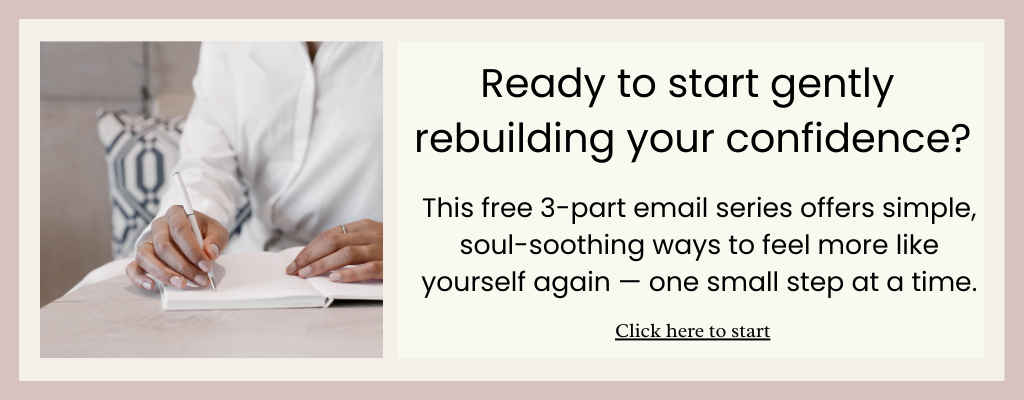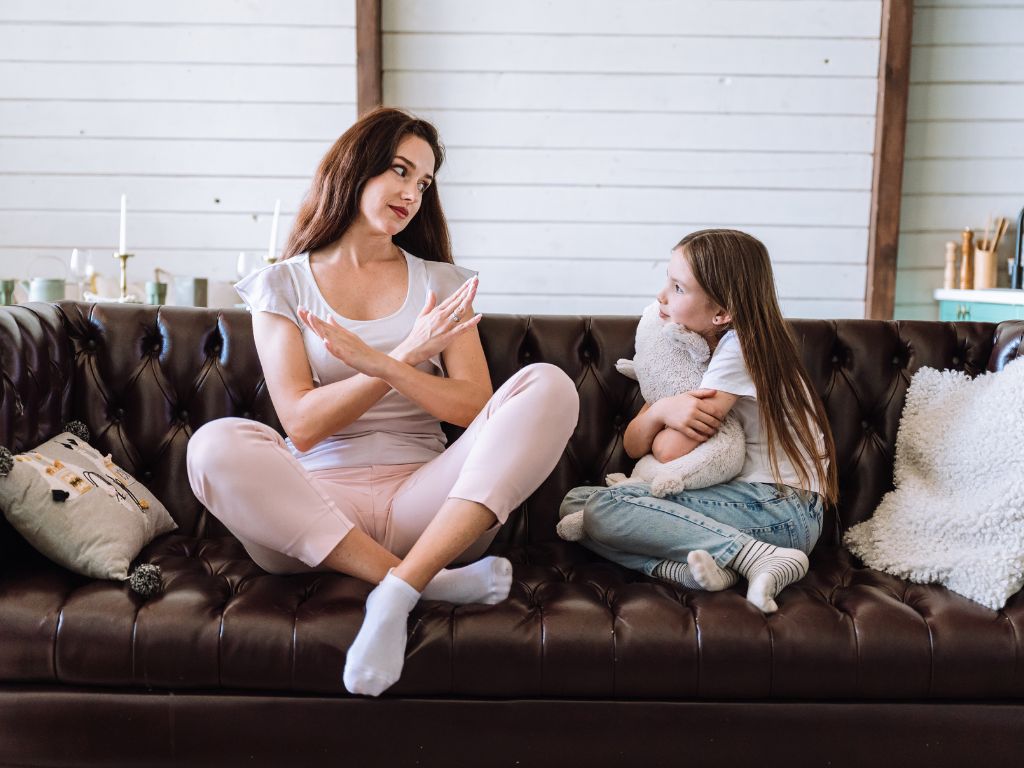

Learning how to stop second-guessing yourself after divorce takes time. You’ve just gone through a life-changing shift that shakes your sense of security and trust in your own judgment. When I first became a single mum, I second-guessed everything — from bedtime routines to career moves. I remember standing in the supermarket aisle, paralysed by a simple decision about which cereal to buy for my daughter.
It wasn’t about the cereal, of course. It was about the fear of getting something else wrong. If you’ve ever felt this, the heavy mix of guilt and doubt, you’re not alone. With time, intention, and support, you can rebuild that inner confidence and learn to trust yourself again.
Rebuilding confidence as a single mum
Becoming a single mum means seeing yourself through a new lens — not as someone who “failed” at marriage, but as someone who’s still showing up, every day, for herself and her child. That’s an enormous strength.
Start by recognising your wins: getting your child to school on time, paying the bills, and managing bedtime cuddles after a tough day. Each of these moments helps develop quiet assurance, trusting that you’ll figure it out.
- Celebrate small achievements, no matter how ordinary they seem.
- Set a simple daily goal and reward yourself when you reach it.
- Use a journal to track moments when you felt proud or capable.

Trusting your decisions and intuition
When you’ve been through a painful split, it’s easy to question your every decision. But your intuition hasn’t disappeared; it’s just buried under self-doubt. Before asking others for advice, take a deep breath and listen inward. What is true for you? Often, your first thought is the most honest one.
Reflect on past moments where your instincts led to something positive — maybe selecting the right childcare, or deciding to stay home on a night you needed rest. You might also explore a guided intuition workbook to rebuild trust in your inner voice.
Overcoming self-doubt in post-divorce life
Self-doubt tends to sneak in during quiet moments. You might wonder, “Did I make the right choice?” or “Am I a good enough mum?” These thoughts are common after separation. The trick isn’t to avoid them but to recognise them for what they are — just thoughts, not truths.
You can shift your mindset by:
- Reframing negative self-talk with facts.
- Practising self-compassion — speak to yourself as kindly as you’d talk to your child.
- Using a mental wellness app for mindfulness and affirmations.
Practical steps to strengthen self-belief
Confidence grows from action — not from waiting to “feel ready.” Start small. Set goals that are realistic and meaningful. Each completed task, no matter how small, is a promise kept to yourself. Here are tips to strengthen self-belief:
- Write down one personal and one parenting goal each week.
- Celebrate when you achieve them — progress deserves recognition.
- Consider a self-development course designed for mums rebuilding self-esteem.
Setting healthy boundaries after separation
After separation, it’s easy to feel compelled to please everyone — your child, your ex, your family. But without boundaries, you burn out. Boundaries protect your energy, enabling you to be your best self for your child.
Start by identifying where you are drained or resentful — that’s your cue that a boundary is missing. Boundaries are not about being difficult; they’re how you stop second-guessing yourself after divorce and protect your energy for what matters.

Coping with emotional challenges and guilt
Guilt can seem like a constant shadow — wondering if you’ve hurt your child, or if you could’ve tried harder. However, the truth is that guilt shows you care. But it shouldn’t define you.
Use mindfulness to pay attention to your feelings without judging them. When emotions become overwhelming, consider talking to a friend, counsellor, or a mental health app that offers guided reflections.
Celebrating small wins to stop second-guessing yourself after divorce
Each small win matters — from staying patient during a tantrum to managing your own bills. Noting these moments helps you stop second-guessing yourself after divorce because you’re collecting real proof that you can handle hard things. Write them in a goal planner or journal and watch your confidence compound over time.
Moving forward with clarity and empowerment
As your self-trust grows, so does your clarity. You start making choices with less fear and more trust. Look back on your journey — what lessons have you learned? What strengths have emerged? Then, choose one empowering goal for the next season of your life. A personal growth course can help you structure that next chapter with intention.
Creating a support system that encourages self-trust
Surround yourself with people who listen without judgment — friends, family, mentors, or fellow single mums who truly understand. Join online mum communities where you can share stories, ask for help, and celebrate each other’s progress.

FAQ:
- How do I make self-belief a daily practice?
Keep a visible list of your accomplishments, like writing down one action you’ve taken today to reinforce self-belief. Seeing your progress reminds your brain you’re capable and resilient.
- What are practical ways to stop self-doubt from controlling my life?
Catch your self-critical thoughts and replace them with evidence of your strength. Practice makes it easier over time—Journal a moment when you challenged self-doubt and what result followed.
- How do I trust my instincts after making difficult choices?
Start by noticing when your body feels calm versus tense — your intuition often speaks through physical signals before you can put words to it. Think of a time when you trusted your intuition and how it turned out.
- How do I protect my emotional health while co-parenting?
Be clear about what you can and can’t commit to, and communicate it calmly. Boundaries are about respect, not control.
- How can I cope with guilt after divorce without self-judgment?
Remind yourself that you made the best decisions possible with the information available at the time. That’s enough. Journal your emotions you’ve felt this week and how you’ve cared for yourself through them.
- Why are small wins important in building confidence?
Because they remind you that you’re already achieving more than you realise.
- What’s one fast way to stop second-guessing yourself after divorce?
Decide the smallest next step you cannot get wrong (email, call, or 10-minute task), do it, then pause and reassess.
Conclusion: How to Stop Second-Guessing Yourself After Divorce
Trusting yourself again takes time, and that’s okay. It is a profoundly personal journey. But each time you reflect, act with courage, or take one small step forward, you’re proving that your intuition, love, and strength are still intact. You don’t need to have it all figured out. What matters is your willingness to keep moving and showing up for yourself, even when things still feel uncertain.
You’re not alone in this, Mama — you’re rediscovering your strength, one choice at a time.
Ready for some gentle, tailored support to stop second-guessing yourself after divorce? Book a 30-minute Nurturing Empowerment Call—let’s find your smallest next step together.

Share:
Read Next


Self-Love on Valentine’s Day: New Confidence After Separation

